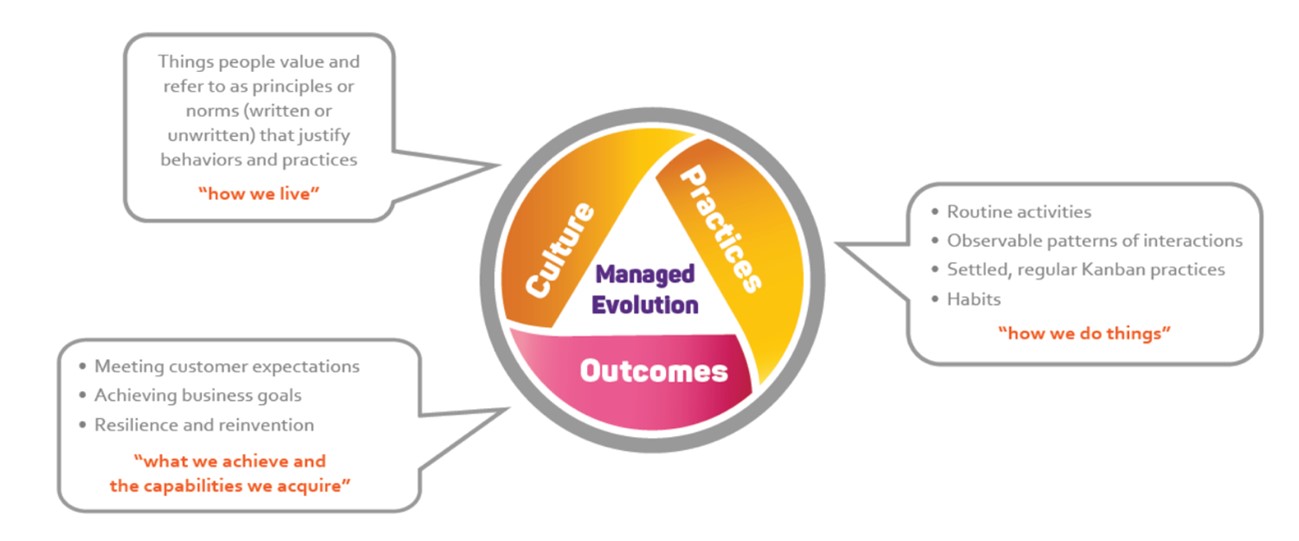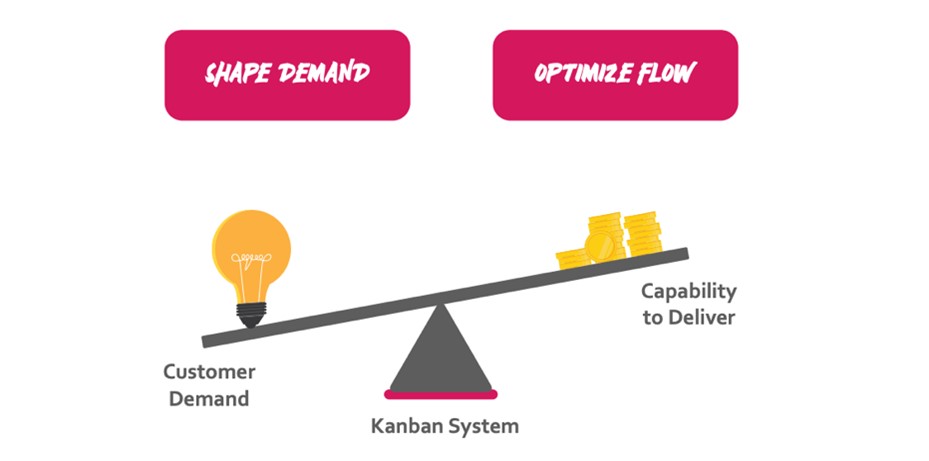Kanban Method: how to work in an agile, efficient way and satisfy your customer's needs
---
The legal services industry is going through an accelerated and highly complex transformation from which there is no going back
The globalisation of all industries, the appearance of disruptive technologies and the digitalisation of knowledge services are but a few of the challenges that we in the legal sector are facing.
The liberation of legal services has led to new players taking action, that is, from all kinds of legaltech solutions to alternative legal service providers, which have provoked an explosion of new business models that are creating a much more competitive market.
The COVID-19 pandemic has taken everyone from the comfort of the office, bringing to light the real work we each do and bring to our teams and organisations. The role of offices and work spaces and the way we relate and collaborate with one another has changed for ever.
Legal services clients are mature and more demanding in all senses. They require a greater understanding of their businesses and that we align our services with their business objectives. They need legal services of a higher value, flexible and in tune with their present needs. What is more, they expect, of course, to get these with the highest quality and speed and for a lower price.
Despite the velocity of the social, economic, technological and regulatory changes over the last decades, lawyers and professionals in the legal sector are still anchored to the more traditional work styles.

The new generations of law students see this and are demotivated when faced with such an out-of-date sector. Legal services consumers are not seeing the same kind of evolution as in other services. For lawyers finding a working style that creates a work-life balance is a utopia. Team managers dedicate themselves to coordinating work through a culture of control and being as efficient as possible. Partners of law firms try to re-invent their business models with the aim of maintaining them profitable. The legal sector is overwhelmed with this new scenario.
Organisational and business agility is the solution
It is easy to predict that, as in all markets, only those lawyers, law firms and organisations in the sector that are quick to adapt to the new scenario, offering better solutions and services, in response to the new needs, will evolve and survive.
Only those that are resilient and reinvent themselves by, finding a new balance for all stakeholders, finding a new way to create value and generate different outcomes, will have a position in the market in the medium term.
The change must be quick. It requires new values and organisational structures to be able to offer more modern, sustainable, efficient, client-orientated, competitive and profitable services.
The greatest challenge those of us in the legal sector face in coming years is being able to create agile organisations and robust businesses that are capable of reinventing themselves.
Incorporating organisational and business agility in the legal sector means changing the way we do things. Starting with a critical review of the values that make up our culture, changing the habits we adopt, adjusting our patterns of interaction and cooperation, modernising the processes that we follow and reviewing all of the behaviour that determines the way we work.
Agility incorporates the values and principles of the so-called “Agile Methodologies”, that started around 20 years ago in the software development industry, as an alternative to the traditional project management procedures.
While the Kanban Method is not one of these original ¨Agile¨ methodologies, it is a contemporary and emerged as a response to the difficulty some organisations had with adoption of an Agile approach. Above all, Kanban integrates the culture of acceptance of change and taking advantage of this change, by adapting and evolving, aiming for continued improvement in the face of rigid work plans. Moreover, it also puts the focus on people and encourages collaboration.
It is said that the Kanban Method is an alternative path for professional services to business agility, understood as the ability of organisations to adapt to new contexts and respond quickly to constant change.
Kanban is rooted in two simple premises:
1. Rather than managing and controlling workers and blocks of time, we should manage and control quantities of work-in-progress, and let workers organise themselves around it.
2. Rather than changing our business context to fit a defined and prescribed mode of working, we should start with how we work now, and adapt and evolve, incrementally, until we fully satisfy client expectations while operating a profitable and sustainable business.
Kanban requires us to think differently, and to adapt the culture of our organisations.
How do we deal with a cultural mindset shift?
All cultural changes must be evolutionary and take place at different levels. It is not about us obsessing over implementing a disruptive and dramatic restructuring of organisations and services, or frantically adopting technology for its own sake.
Drastic social and organisational changes only serve to slow businesses down. We must be aware that to successfully manage this huge transformation, the greatest obstacle we face is always resistance to change.
Moreover, what is probably the greatest difficulty for the legal sector is the lack of interest, given all that this implies broadly, in changing the traditional business model.
Whatsoever the case, it is about us really beginning to understand our purposes and what our values are, what we are searching for and what we achieve, understanding how we work and why.

It is about analysing what we do to improve ourselves, our teams, and our organisation.
It is about reflecting on what we do to understand and respond to the needs of consumers.
It is about implementing a culture of collaborative continuous improvement through organisational learning with the aim of changing the outcomes.
What is the Kanban Method?
The Kanban Method was first written about by its ideator, David J. Anderson, in the book "Kanban: Successful Evolutionary Change for Your Technology Business" (2010), in which he described the management method that he had been using with his teams at Microsoft and Corbis, a stock photography & intellectual property rights licensing business.
Although the Kanban Method was created and developed in the software development services industry, David's main motivation to create the method was mainly to find a way to manage and improve professional service businesses, making them more profitable. He was inspired by concepts developed at Toyota, in their Toyota Production System (TPS), and adapted the concepts for use in professional services organizations.
In turn, the objective was to create a humane approach to change that was compatible with the human condition: to recognise that humans don´t so much resist change, as they resist being changed. David´s objective was to create the evolutionary DNA inside firms such that they could adapt and be resilient in the face of changes in the markets.
The key to the method is to ensure that it is the work that is being managed and not the people. It starts from understanding that the delivery of professional services is a process, which goes from a request by the client, internal o external, to the delivery of an outcome. Therefore, we must ensure that we have the appropriate capacity to carry out the demand and that we manage and deliver it in the manner and time agreed to. We have to ensure that the work we carry out and the value we offer is, at all times, what is required and needed by the client.
Given that work knowledge is intangible by nature, in order to manage and improve this work knowledge agilely we have to start by visualising it, ensuring that all members of the team and the organisation literally have the “same image”. To do so, first we implement the visual management of work processes, through so-called “kanban boards”. The work, represented by post-its or digital cards, which include the task to be done, has to flow through different phases of the process.
When we can see and understand how work is progressing, or not, what is causing delays or dependencies, etc. ... we are able to manage it better and over time create the so-called “kanban systems”, which are work flow systems.
Through the use of visual signals ("kan” “ban"), we progressively limit the amount of Work In Progress (WIP), which is the work we are doing at the same time (usually too much), establishing prioritisation rules or policies.
From there, we can start creating the so-called Pull systems in which work is "pulled" (from within) only when there is available capacity to do it, instead of "pushing" (from outside) the work, even when there is an overload.
The goal is always to complete the job as agilely, quickly and predictably as possible.
The benefits of applying the Kanban Method to legal services
The practical implementation of the Kanban Method in all its dimensions, not only improves legal services delivery but also manages change towards business Agility.
The application of the Kanban Method in the legal sector relieves overburdening, both for individuals and teams, reducing multi-tasking, improving efficiency and ultimately, a progressive improvement in quality and prompt delivery of customer service.
By creating a work management system based on the limitation of the activities that we carry out at the same time, we are able to work in a sustainable way. The balance between the demand for work by clients (external or internal) and the capacity of lawyers and teams becomes a reality. We are able to achieve an acceptable and sustainable rhythm of work, improving the motivation and satisfaction of the lawyers with the work carried out.

Secondly, we achieve a significant reduction in the variability in the work process, despite the standardisation of legal service being much more complicated and less accepted than in product production industries. By collecting data on the completion times of activities, it is possible to obtain patterns to improve predictability in how long a piece of work will take. In this way, we can make more reliable decisions and we can generate more confidence, by being able to commit ourselves and give an agile, fast and adapted response to different demands.
The elimination of work which adds no value, is a higher-level objective related to the economic profitability of the business. Given that in the daily provision of legal service there are endless activities that could be considered and labelled as having no real value, mostly developed by managers, they are not very easy to eradicate.
With the Kanban Method we manage to adopt a deep-rooted culture of continuous improvement. We promote and achieve the empowerment of lawyers and other professionals.
By defining objectives, continuously making small changes, making mistakes and accepting failure using the empirical data that we collect and evaluating the results, we manage to stabilise and standardise processes and achieve an evolutionary and incremental change in organisational and business maturity.
Ultimately we achieve the development of work systems based on cooperation at all levels.
In summary, the benefits that the applicability of the method offers us are
1. Sustainability of work
2. Provision of customer-oriented services
3. Business survival
4. Continued improvement
5. Business Strategy
Trainer: Lilian Mateu
Despite the speed of social, economic, technological and regulatory changes over the last decades, lawyers and professionals in the legal sector are still anchored to the more traditional work and management styles.
The globalization of all industries, the appearance of disruptive technologies and the digitalization of knowledge services are but a few of the new scenarios that lawyers and professionals in the legal sector are facing. The liberation of legal services has led to new players taking action, which has provoked an explosion of new business models that are creating a much more competitive market.
The legal services industry is going through an accelerated and highly complex transformation from which there is no going back. The COVID-19 pandemic has taken everyone from the comfort of the office, bringing to light the real work we each do and bring to our teams and organizations, and has accelerated the need for a change.
Incorporating organizational and business agility, which means changing the way we manage work and teams to achieve different outcomes, leading with new values to adapt to the new context and respond quickly to constant change, is the greatest challenge for the legal services industry in the coming years.
Kanban Method for lawyers
The Kanban Method is an alternative path for professional legal services to business agility. Applying the Kanban Method on teams and organizations on the legal sector offers us a new way to design, manage and improve services in the legal sector.
Strengthens collaboration and teamwork naturally, creating a human approach to change management fostering leadership at all levels.
The principal benefits that the applicability of the method offers us are:
• Sustainability and balance and work
• Effective collaboration between professional
• Leadership at all levels
• Provision of customer-oriented services
• Continuous improvement in management
• Business survival and strategy
The Kanban Method is simple to understand but not so easy to apply. Obtaining its full benefits depends on the way it is implemented, along with the appropriate training and knowledge.
Attending to this course, you will be able to access to a certified training on the basics of Kanban Method, adapted to the legal sector. After taking the course you will be capable to start implementing the Kanban Method “next Monday” applying first Kanban Practices in your day-to-day work.
Who should attend?
Lawyers and professionals of the legal sector who want to find a way to:
• Perform the work in an orderly, balanced and efficiently manner without feeling overloaded.
• Define criteria for prioritizing work, focusing on what to work on now, what to leave until later and what to discard altogether, ending with “everything is urgent”.
• Foster better teamwork, collaboration, communication and trust.
• Improve service delivery to “get things done” with quality, improved speed, and predictability,
• Focus on customer satisfaction by providing high value services, flexible and in tune with their present needs and business goals.
• Create agile organizations and resilient businesses that are capable of reinventing themselves.
What will you learn?
You will be introduced to the basic concepts of the Kanban method applied to the legal services and industry
You will learn how to detect overloading of individuals and other causes of low efficiency in individual and work management.
You will learn to increase productivity, individual and team satisfaction, speed and quality in work, and improving evolutionarily.
You will learn to manage work visually using a kanban board, implementing work policies and conducting effective meetings.
Content:
• Motivations and benefits to apply Kanban Method
• Principles and values of the Kanban Method
• What is a kanban system
• How to design a kanban board and a ticket
• How to manage service delivery workflow kanban
• How to apply the practices of the Kanban Method
• Overview of Kanban Method basic Meetings
• Kanban key metrics and graphics
• Introduction to the Kanban Maturity Model
The practical implementation of the Kanban Method requires relatively little effort and not only improves legal services delivery but also manages change towards business agility.
What will you get?
• High quality interactive online training adapted to professionals in the legal sector and focused on the uniqueness and complexity of legal services.
• Training materials in electronic format (pdf format)
• Official certificate from the Kanban University.
• Access to discounts for STATIK workshops (System Thinking Approach to Implement Kanban)
• 2 free coaching sessions that will help you implement and adapt the Method in your team and organization.
Dates and duration
The course will be developed online in 4 work sessions of 3 hours. All sessions will be live and interactive.
Spanish
1) Monday 18 to Thursday 21 October, 2021.
2) Tuesday 26 and Thursday 28 October, Tuesday 2 and Thursday 4 November 2021.
English
3) Tuesday 16, Thursday 18, Tuesday 23 and Thursday 25 November, 2021.
4) Monday 29 November to Thursday 2 December, 2021.
We can facilitate private courses for your team or organization in your premises.
Contact for more information here.
E-mail: hola@selectius.com
Tel.: +34 610 258 431
Related links
Main menu






